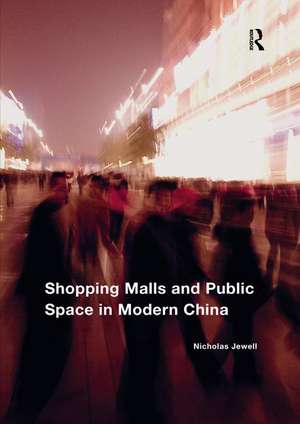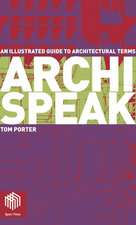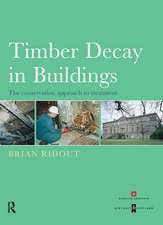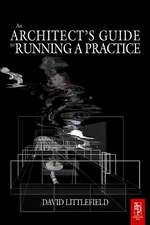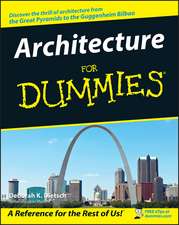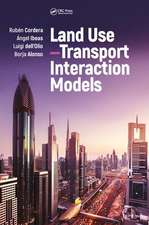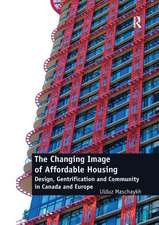Shopping Malls and Public Space in Modern China
Autor Nicholas Jewellen Limba Engleză Paperback – 12 oct 2017
Preț: 450.40 lei
Nou
Puncte Express: 676
Preț estimativ în valută:
86.19€ • 90.40$ • 71.75£
86.19€ • 90.40$ • 71.75£
Carte tipărită la comandă
Livrare economică 01-15 aprilie
Preluare comenzi: 021 569.72.76
Specificații
ISBN-13: 9781138573338
ISBN-10: 1138573337
Pagini: 296
Dimensiuni: 174 x 246 x 16 mm
Greutate: 0.48 kg
Ediția:1
Editura: Taylor & Francis
Colecția Routledge
Locul publicării:Oxford, United Kingdom
ISBN-10: 1138573337
Pagini: 296
Dimensiuni: 174 x 246 x 16 mm
Greutate: 0.48 kg
Ediția:1
Editura: Taylor & Francis
Colecția Routledge
Locul publicării:Oxford, United Kingdom
Notă biografică
Nicholas Jewell is a practicing architect in London, UK, and completed a PhD at the Bartlett School of Architecture, UCL, on shopping malls and urbanism in China in 2013. Related research, on the hybridisation of Chinese models of the shopping mall on British shores was the subject of an RIBA Research Trust Award in 2010. He won the RIBA Dissertation Prize in 2000 for an essay on British malls subsequently published in The Journal of Architecture (2001). He has lectured widely on the subject of shopping malls and contributed to a number of publications, including a chapter on Dubai’s shopping malls in Architecture and Globalisation in the Persian Gulf Region (2013).
Recenzii
’This is a fascinating account of the emergence of Chinese shopping malls, explaining the evolution of architectural forms as well as peculiar contexts of cultural and consumption practices in China. Nicholas Jewell illuminates the social and spatial production of distinctive architecture in the Chinese consumerist society.’ Fulong Wu, University College London, UK ’This is a highly original and lucidly written book spanning architecture, urban studies and social theory. Forging new understandings of both the shopping mall and the Chinese city, it links the evolution of this problematic building type to an emerging Chinese nationalism, lifestyle and class structure. Highly recommended reading.’ Kim Dovey, University of Melbourne, Australia; author of Framing Places and Becoming Places
Descriere
This volume addresses a less explored aspect of China’s urban rejuvenation - the prominence of the shopping mall as a keystone of its public spaces. Here, the presence of the built form most representative of Western capitalism’s excess is one that makes explicit the tensions between China’s Communist state and its ascent within the ’free’ market. This book examines how these interrelationships are manifested in the culturally hybrid built form of the shopping mall and its role in contesting the ’public’ space of the modern Chinese city.
